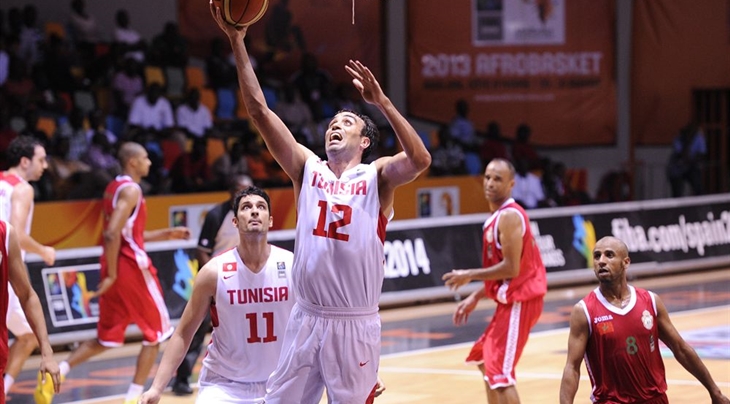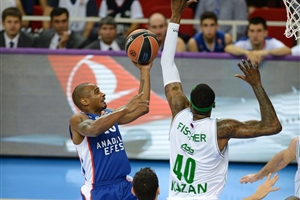
Tunisia aiming higher goals
SHEFFIELD (Julio Chitunda’s African Message) - Tunisia should be voted African capital of basketball 2014-15 for their dedication and passion for the game.
This is a country that has, countless times, made it clear of their basketball ambitions, not only on the African continent, but also on international stage, where they have had relative success in recent years.
Tunisia will be home to four major basketball tournaments in just ten months, starting with the 2014 edition of the African Champions Cup for Women (ACCW) in Sfax (28 November to 7 December).
The Tunisian capital city, Tunis, will host the annual African Clubs Cup (ACC) - FIBA Africa’s flagship club competition - later in December.
In Tunis, ACC fans will get a chance to seeing some of the top performers, including some quality foreign players (European and North Americans are present in significant scale), based on the African continent.
But before the Tunisians end their international basketball agenda next September with the hosting duties of AfroBasket 2015, their organising capabilities will be put to the test next June when they host the 2015 edition of the FIBA 3x3 U18 World Championships, a major event that keeps registering enormous popularity worldwide and will be staged in Africa for the first time after successful events in Italy (2011), Spain (2012) and Indonesia (2013).
Such basketball commitment can only translate Tunisia’ willingness to rule the game on the continent.
Beating Angola in the final of the 2011 edition of AfroBasket in Madagascar, and punching their first Olympic Games ticket ever, signalled what goes through their basketball ambition.
Last week, Ali Benzarti, the Tunisian Basketball Federation chairman, gave yet another example of how they want to take Tunisian basketball to the next level.
The Tunisians signed a partnership agreement with Jean-Pierre Siutat, chairman of the French Basketball Federation, aimed at the modernisation of the institution that governs basketball in the country.
The agreement gives Tunisia a chance of facing the 2013 EuroBasket champions next summer during their preparations ahead of the 2015 FIBA Africa Championship.
Whether or not that move will bring success and attract more investment for the Tunisians, only time will tell.
Nevertheless, African basketball followers should watch out because the Tunisian basketball authorities are fighting two of African basketball’s worst enemies: modernization and lack of regular international competition.
The next ten months will be challenging for the Tunisians, we all know that.
And, more than measuring Tunisia’s organising skills, it will scrutinise what the future holds for basketball in the country.
Their youth teams have achieved some good results in recent years, and their continuity policy seems to be unparalleled on the continent.
With the exception of the Tunisian women’s national team, all the others rank among the top-5 teams in Africa.
Since hosting the 2005 FIBA Women's U19 World Championship, Tunisian basketball was never the same again as they recorded significant popularity of the game in the country and made visible competitiveness progress.
For the Tunisians, it is all about making a bigger basketball impact, no matter where or what.
Julio Chitunda
FIBA
FIBA's columnists write on a wide range of topics relating to basketball that are of interest to them. The opinions they express are their own and in no way reflect those of FIBA.
FIBA takes no responsibility and gives no guarantees, warranties or representations, implied or otherwise, for the content or accuracy of the content and opinion expressed in the above article.


















